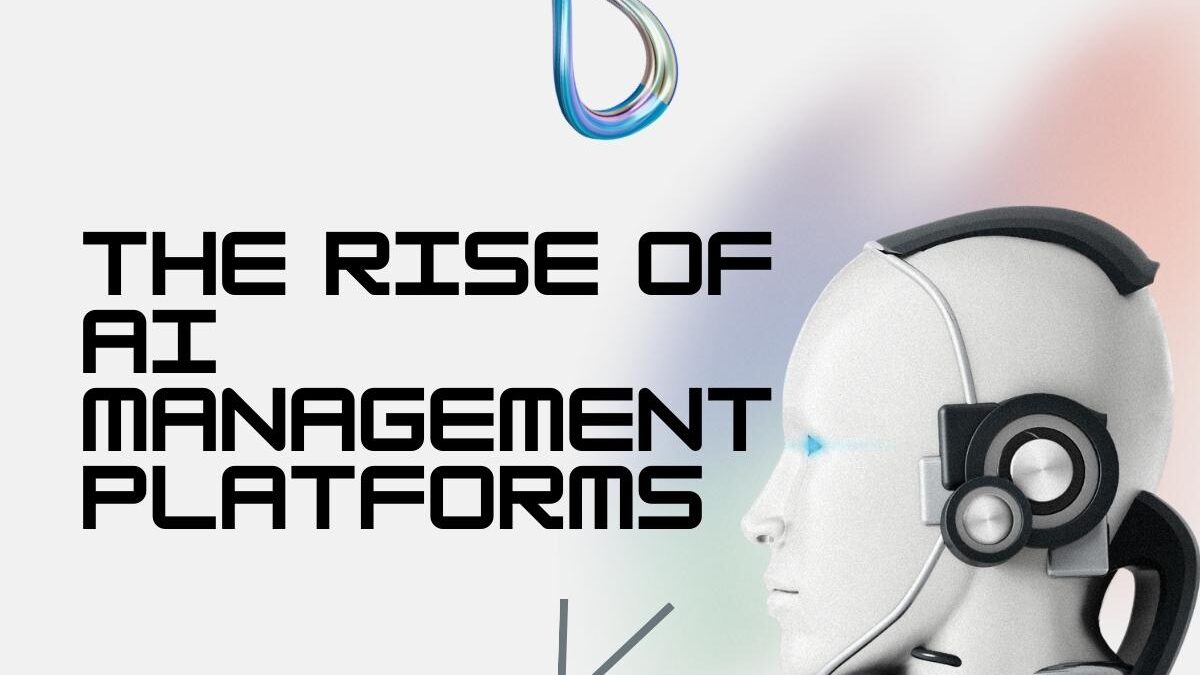In today’s digital age, artificial intelligence has become a pivotal factor in driving business innovation and efficiency. With the integration of AI into various sectors, the need to effectively manage these intelligent systems has led to the rise of a specialized solution – AI management platforms. These platforms are designed to streamline the deployment, monitoring, and governance of AI applications within an organization. As businesses continue to harness the power of AI, understanding the impact and utility of these platforms is crucial. Below, we explore their emergence, defining features, transformative effects on the workforce, adoption challenges, and future trends.
Table of Contents
The Emergence of AI Management Platforms in Modern Business
An AI management platform is essential for businesses leveraging AI to stay competitive. It centralizes oversight, ensuring projects align with business goals while maintaining compliance. By bridging the gap between AI potential and real-world application, it enhances efficiency, optimizes performance, and fosters collaboration across teams.
As the market for these platforms grows, companies adopting them can better scale AI initiatives and navigate evolving technology trends. They also help businesses address data privacy, ethics, and AI-related risks, ensuring regulatory compliance and consumer trust.
Key Features That Define AI Management Platforms
AI management platforms are essential tools for organizations that manage the entire AI lifecycle, from data preparation to model training and deployment. They provide end-to-end coverage, ensuring smooth operation of AI applications within an organization’s infrastructure. These platforms also offer automation capabilities, automating repetitive tasks like model retraining or performance tuning, allowing businesses to allocate resources more effectively and focus on strategic decision-making.
They prioritize security and compliance, offering built-in features for data governance and access controls, especially in industries dealing with large volumes of personal data. User-friendly interfaces and collaborative environments are also vital features, enhancing productivity and innovation in AI projects. These platforms are particularly useful in industries dealing with large volumes of personal data.
How AI Management Platforms Are Transforming Workforce Dynamics
AI management platforms are revolutionizing workforce dynamics by enabling employees to use AI tools without requiring deep technical expertise. They promote a culture of data-driven decision-making and automate routine tasks, allowing employees to focus on strategic analysis and innovation.
These platforms also enhance cross-departmental collaboration, bridging the gap between data scientists and marketing professionals to improve customer experience or streamline operations. The adoption of AI management platforms is driving the need for new skill sets within the workforce, as employees are expected to cultivate a combination of technical and analytical skills to interact effectively with AI systems. This evolution is reshaping career paths and the nature of work itself.
Navigating the Challenges and Risks of AI Management Adoption

AI management platforms offer numerous benefits, but their adoption can be challenging. Employees may resist change due to concerns about job security, but leaders should educate and promote transparency. AI should be seen as an enabler rather than a replacement. Risks include potential bias and unethical use, so platforms should be designed with fairness and subject to regular audits.
Financial constraints can also hinder widespread adoption, especially for smaller businesses. As technology matures, cost-effective solutions will emerge, broadening the scope of companies. Organizations must choose platforms with scalability and flexibility to adapt to new AI methodologies and integration needs.
Future Trends: Predicting the Evolution of AI Management Tools
AI management platforms are expected to become more powerful and intuitive, with advanced natural language processing and machine learning algorithms enhancing their analytical and predictive capabilities. The rise of edge computing will drive the demand for platforms that can manage distributed AI systems effectively, leading to advancements in decentralized AI management.
Augmented reality and virtual reality will become intertwined with AI management, providing new ways to visualize and interact with complex models. Future AI management tools will include robust frameworks for ethical AI usage, facilitating compliance with ethical standards and legal requirements in an automated and transparent manner.
Overall, AI management platforms represent a critical evolution in the way companies leverage technology to drive business outcomes. As these tools continue to mature, they are poised to offer even greater utility and efficiency gains, altering the business landscape and the future of work. By staying informed about the latest advancements and considerations, organizations can maximize the value of their AI investments and ensure a leading position in the era of intelligent automation.

